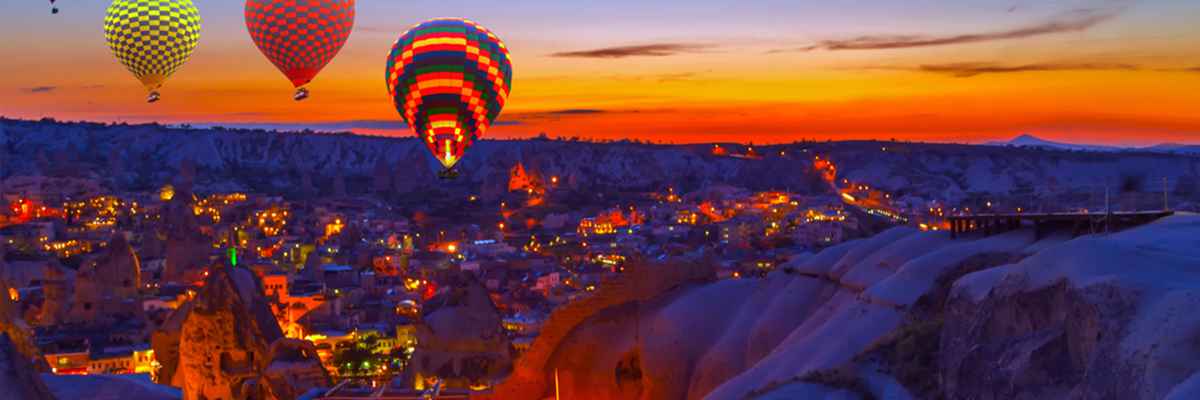Are you getting ready for your next big show? Are you confused about whether you require a DMO, DMC, or both? Still, you are struggling to determine which company performs what, when, and how? The difference between a DMO and a DMC is detailed below to help meeting planners understand the concepts and select where to seek help.
What is the destination?
Before looking into the definitions of DMOs and DMCs, it is crucial first to understand what a destination is. It may seem clear to make a destination somewhat, but a few key characteristics identify one. Destinations are physical spaces in which a visitor stays at least one overnight. They are seen as centres that fuel tourism activity and involvement.
- The existence of attractions, tourism support services, and tourism and non-tourism related activities are among the other characteristics of a destination.
- Both physical and administrative boundaries clearly define management.
- Many stakeholders are involved.
Of course, destinations can be categorized in a variety of ways. For example, some tourists may view a country as a destination, while others may focus on a regional destination or a specific town/city.
What is DMO ?
The term DMO is referred to a destination marketing organization. A destination marketing organisation is also known as a convention and visitors bureau, which will work to increase the number of tourists to a town, city, region, or country. It focuses on convention sales, tourism, marketing, and services to enhance its location’s economic development and promotion. The Greater Raleigh CVB (GRCVB) is a destination marketing organisation. DMOs are specialists in their destinations and can help you arrange a successful event by providing various convention services. In most situations, they will be with GRCVB, and their services are free. DMOs will work with other organisations to help them achieve their goal of assisting you in planning a successful event, and DMCs are one of those organisations.
Responsibilities of DMO
Successful DMOs and destination managers are critical to managing tourism at the local level to attract visitors and assist local businesses. They are also in charge of promoting it through positioning statements, branding campaigns, high-quality product development, effective communication with stakeholders such as residents and maximising financial resources from public and private sources while ensuring that projects meet overall objectives.
Contrary to popular assumption, a DMO’s overall goal is not to attract more tourists to the area. Its goal is to make tourism more long-term and consequently more enjoyable for visitors. Therefore, DMOs engage in many activities aimed at promoting and developing sustainable travel behaviours, such as:
- Educating tourists about the destination’s attractions and services
- Using targeted campaigns to market the destination
- Collaborating with other groups on sustainability issues to achieve mutual goals
- Addressing residents’ tourism-related issues
DMC ?
DMC stands for Destination Management Organization Cand is a concept for a professional services company specialising in planning and implementing events, activities, tours, transportation, and programme logistics and has substantial local knowledge, skills, and resources. They specialize in creating themed events and excursions and streamlining the contracting process. DMCs package and services are normally a sign for a single contract and hence make a single payment for all of them. They concentrate on purchasing and contracting on a local level.
How does DMC work?
A destination management company (DMC) has extensive local knowledge of the place or region they represent, particularly coordinating and implementing everything from programme and event logistics to event activities on the ground. So, a DMC is a highly specialised consultant that can help with almost every aspect of out-of-town event planning.
Most of a DMC’s services are local consultants will fall into one or more of the following categories:
- Program Design: Venue selection and booking, event activity organisation, and even event decor.
- Logistics Management: This includes creating a timeline and schedule for the event, reserving transportation and even coordinating guest arrivals and departures.
- Supplier Management: This includes vendor selection and pricing negotiation with suppliers
- Accounting: Auditing and payment of vendor invoices, financial negotiations and delivering a complete accounting to a client are all forms of accounting services.
A DMC can help with a corporate event planner’s transportation, hotel rooms, food, and local activities. A DMC’s major service is the organisation and planning of the main event itself, whether a gala dinner, corporate meeting, conference, or even a corporate incentive trip.
Some other points know about DMO and DMC
- DMOs are not only interested in citywide events or groups but also wish to use the convention centre. They also work with groups with as few as 20 or 30 rooms on peak nights.
- Planners use DMCs for four basic reasons: Destination-specific operational expertise, Creativity, Outstanding logistical and operational capabilities on-site and Time-saving features.
- DMOs and DMCs are not competitors. They both want your meeting to succeed when it arrives at their location. When the planner requires design, strategy, or coordination of many vendors, the DMO passes the baton to a DMC.
- DMOs and DMCs want to work together on meetings, and the best way to do so is for a planner to bring everyone to the table and disclose who has been requested to assist with certain meeting parts.
Bottom line
Finally, you may understand the main difference between the DMO and DMC from the above points. Both are best according to their services so that you can think and then choose as per your requirements.







